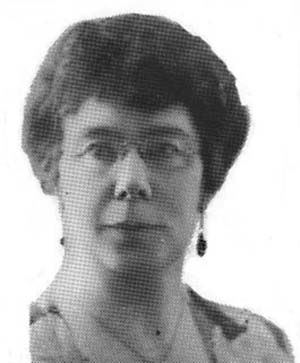Search | Image Archive | Reference | Communities | POV | Lesson Plans | Credits
 Mary Crawford came to Winnipeg in 1903 to join the city's small corps of professional women as a doctor of medicine. She was an obstetrician by training, and she specialized her practice in the diseases of women and children. Like Amelia Yeomans, she embraced the practice of "social medicine," linking issues of public health and social justice. Many of her patients were recent immigrants living in the city's North End where they suffered the deleterious effects of poverty, over-crowding, inadequate housing and the absence of adequate medical services.
Mary Crawford came to Winnipeg in 1903 to join the city's small corps of professional women as a doctor of medicine. She was an obstetrician by training, and she specialized her practice in the diseases of women and children. Like Amelia Yeomans, she embraced the practice of "social medicine," linking issues of public health and social justice. Many of her patients were recent immigrants living in the city's North End where they suffered the deleterious effects of poverty, over-crowding, inadequate housing and the absence of adequate medical services.
The conditions which Crawford observed in the course of her practice strengthened her resolve to effect social change. All too often she met families that were too poor to support themselves, that were unable to feed and clothe their children adequately, and who lived in slum houses without sufficient heat, ventilation and plumbing. She perceived the connection between poverty and disease but also what she saw as a social illness which impaired children for life, perpetuating a cycle of poverty and despair.
Crawford's determination to do something about the abhorrent conditions that she encountered led her to associate herself with the All People's Mission on Stella Avenue. There she organized a home-visitation program where she and other volunteers visited the homes of young families and provided instruction in infant care, hygiene and nutrition. She was a frequent lecturer at the People's Forum, a Sunday afternoon lecture series organized by the Mission's director,. J. S. Woodsworth, and she used projected slides to illustrate her talks as an aid to those whose English was limited. Her lectures were generally on matters of public health and hygiene, including the controversial topic of birth control.
Crawford was one of a small cadre of professional women who took up liberal causes, using her status as an educated woman to campaign for better housing, better wages and working conditions (especially for female workers), and for better treatment of non-English immigrants. Shortly after her arrival, she succeeded Amelia Yeomans as the president of the Women's Christian Temperance Union. In 1909, she joined Lillian Beynon Thomas in forming a Winnipeg chapter of the University Women's Club, and she served several terms as the president. In every capacity, she campaigned vigorously for women's suffrage, prohibition and an end to prostitution. In 1912, when a number of progressive women and men formed the Political Equality League, Crawford was elected to the executive, and she served as president for much of the organization's existence.
See also:
Memorable Manitobans: Mary Elizabeth Crawford (1876-1953)
Page revised: 22 June 2024